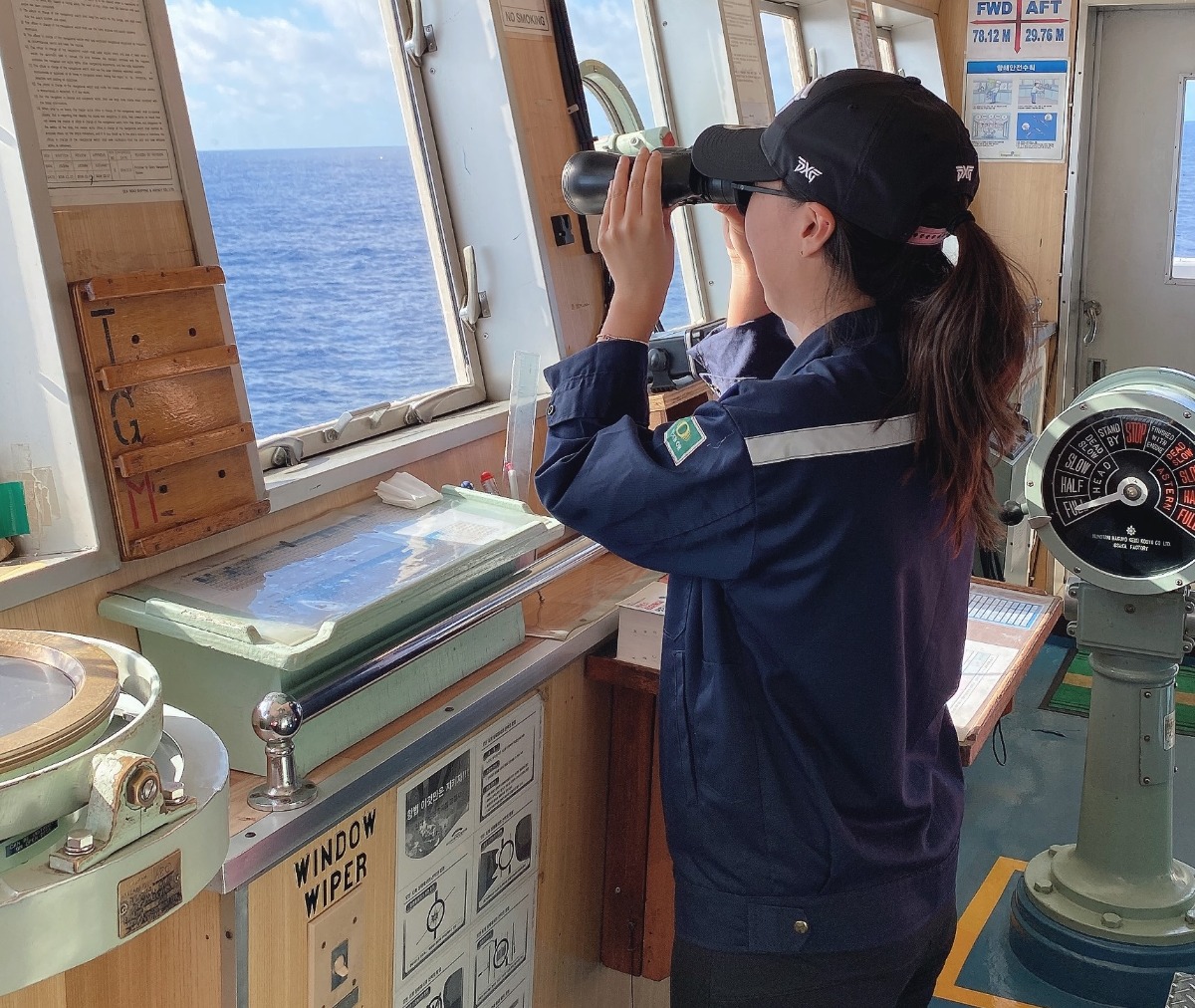Focus on training
Study says seafarer training needs comprehensive overhaul to ensure safe decarbonisation of shipping

According to Lloyd’s Register (LR), over 500 considerations from cross-sector consultations that took place during a series of risk assessment workshops suggest a comprehensive overhaul of seafarer training is required as the industry transitions to zero and near zero GHG emission fuels.
These are the outcomes of a summary report, which was produced by the Maritime Just Transition Task Force (MJTTF), in collaboration with Lloyd’s Register’s (LR) Maritime Decarbonisation Hub and the United Nations Global Compact (UNGC) Ocean Stewardship Coalition.
Made possible with the support of the International Maritime Organisation (IMO) and founding funder Lloyd’s Register Foundation, the report marked the completion of the first milestone of the MJTTF training project for the development of a baseline training framework to equip seafarers with the skills required to safely use ammonia, methanol and hydrogen as marine fuels. It is the high-level summary of the consultations made by over 100 stakeholders during 12 hybrid risk assessment workshops, which took place last year.
LR notes that zero and near zero GHG emission fuels such as ammonia, methanol and hydrogen present unique challenges and hazards to the crew’s health and safety; requiring specialised knowledge and safety measures to be adequately and effectively implemented. However, the current Standards of the Training, Certification, and Watchkeeping for Seafarers (STCW) Convention do not yet include guidelines or competency levels when specifically dealing with these green molecules.
The workshops focused on the use of ammonia, methanol and hydrogen as marine fuels to gather the industry perceptions on the necessary changes for seafarers transitioning from conventional fuel oil operations to zero and near zero energy sources for ships’ propulsion. The workshops identified the most significant safety risks associated with each fuel in scope and the new or modified training and competencies required for such a transition to be safe and effective, putting the seafarer at its core.
Considerations on ammonia highlighted its toxicity as a major challenge and alluded to comprehensive training on emergency response procedures, alongside new PPE standards and process safety measures.
Similarly for methanol, key concerns included the fuel’s high flammability, requiring new fire detection methods and updated personal protective equipment (PPE) protocols. Detailed training on methanol’s toxic properties and corrosivity will also be necessary in the next phase of the transition.
For hydrogen, considerations focused on issues such as flame detection and enhanced fire safety systems that would be vital for the crew, while repeating the need for new PPE protocols to be introduced to fully address hydrogen’s hazard profile.
Following on from these stakeholder engagements, the MJTTF training project will develop detailed competency standards and a training framework to help maritime training academies and institutions further draft and implement training materials for upskilling and reskilling seafarers who will come in contact with hydrogen, ammonia and methanol as marine fuels. A roll-out of the Instructor Handbook to accompany the training framework is scheduled to take place in MTCC Asia in May 2025. The roll-out will be led by the World Maritime University (WMU), who lead this upcoming milestone as project partners.
Natassa Kouvertari, Senior Lead – Human Competency for LR’s Maritime Decarbonisation Hub, said: “This report crystallises the industry’s views on what level of human competencies and training frameworks are needed for the safe deployment of ammonia, methanol and hydrogen onboard ships. It also aims to capture the scale of change required for each fuel in scope, establishing the foundations for informed decisions to be taken by the regulators and the industry for a meaningful just transition for seafarers.’.
Kjersti Aass, Head of the Maritime Just Transition Task Force on behalf of UN Global Compact, said: “The UN Global Compact, through the Maritime Just Transition Task Force, is proud to lead the Training for Decarbonisation project in collaboration with the IMO Secretariat to facilitate the uptake of alternative fuels and ensure a safe, just and equitable transition as shipping is decarbonising.”
Ismael Cobos Delgado, Deputy Director, Subdivision for Operational Safety and Human Element, IMO, said: “IMO is committed to ensuring that the maritime workforce is prepared for the new fuels, with differing hazards and operational challenges, that will be part of the picture to meet the IMO 2023 GHG Strategy goals. IMO is pleased to be working with partners to ‘fast-track’ the development of training provisions for ships using new technologies and alternative fuels, alongside and in parallel to the comprehensive review of the STCW training Convention and Code.”
Free new training standard for alternative fuels
In a separate development the Nautical Institute (NI) has released its new training standard for alternative fuels. This standard, available free of charge, underscores the Institute’s commitment to its work as an educational charity dedicated to the safety of seafarers.
As the first milestone in the IMO’s 2023 GHG strategy approaches with the requirement for between 5% and 10% of the world fleet expected to be powered by zero or near-zero GHG emission technologies, many shipowners have had to take a decision on how they will fuel their fleets before all the variables have been fully tested. The NI comments: “The result is that we can expect vessels powered by a number of different fuels such as ammonia, methanol and hydrogen to be launching within the next few years before the IMO will be able to establish STCW competency requirements. Although tanker operators have been transporting these fuels as cargo for some time, there is a lack of experience of the procedures needed for their safe bunkering.”
Recognising that there will inevitably be a gap between the first of these vessels coming into service and the STCW requirements being implemented, the NI says it took the lead to develop guidance that provides an interim framework for trainers and training providers globally. This standard is voluntary and offers broad guidelines that will enable training institutions to create training programmes to meet current needs but leave room for future development as alternative fuels become more established and operational practice evolves.
With a 10-part scheme of work, the NI’s Training Standard for Handling Alternative Fuels in the Maritime Sector provides guidance to training providers to offer programmes of learning that ensure seafarers will have the knowledge to handle bunkering of alternative fuels safely and confidently.
NI CEO John Lloyd said, “This standard doesn’t replace the STCW requirements that will be established in the coming years. Rather it seeks to offer interim support that bridges the gap until that time and, having been designed as a living document, it will be able to evolve with industry best practice. We have always been dedicated to promoting the highest standards of professionalism, competence, and safety in maritime through the provision of training, sharing knowledge and expertise, and prioritising the safety of working seafarers and we believe that by making available this new standard free of charge throughout the industry, we are adhering to these values.”
Image Credit: IMO
21/02/2025
get
in touch

Constructive Media
Constructive Media
Hornbeam Suite
Mamhilad House
Mamhilad Park Estate
Pontypool
NP4 0HZ
Tel: 01495 239 962
Email: ibia@constructivemedia.co.uk

On behalf of:
IBIA London Office
Suite Lu.231
The Light Bulb
1 Filament Walk, Wandsworth
London, SW18 4GQ
United Kingdom
Tel: +44 (0) 20 3397 3850
Fax: +44 (0) 20 3397 3865
Email: ibia@ibia.net
Website: www.ibia.net

Emails
Publisher & Designer: Constructive Media
ibia@constructivemedia.co.uk
Editor: David Hughes
anderimar.news@googlemail.com
Project Manager: Alex Corboude
alex@worldbunkering.net
